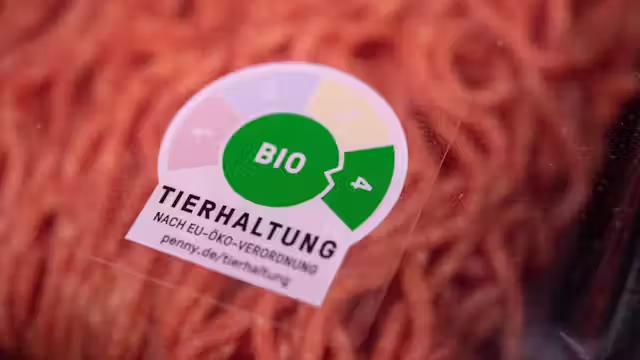South Africans want to shop more sustainably, according to research published in the journal Sustainable Development. But most can’t tell which products are environmentally friendly.
Some food manufacturers have introduced eco labels – a certification symbol placed on product packaging. This indicates the product meets specific environmental standards set by a third party organisation.
These labels are meant to signal to consumers that a product has been produced in a way that limits harm to the environment. But our recent study with 108 South African consumers showed low recognition of eco labels, widespread confusion, and a need for clearer guidance.
The results show that most South African shoppers are unfamiliar with these labels or unable to differentiate between real and fictional ones.
In the European Union eco labels like the EU Energy Label are easily understood and highly visible. They are also usually supported by government awareness campaigns. Other examples of labelling systems that work well include those of Germany and Japan.
These countries show that long term institutional support, mandatory labelling in key sectors, and consistent public messaging can greatly improve eco label recognition.
We concluded from our research that South Africa lacks that national visibility and public education, leaving even motivated consumers unsure of what labels to trust. Based on our findings we recommend steps businesses, government and nonprofits can take to ensure that eco labels are clear, visible and understood.
Eco labelling at its best
The EU Energy Label is used on appliances such as fridges, washing machines and light bulbs to indicate their energy efficiency on a scale from A (most efficient) to G (least efficient).
In countries like Germany and Japan, eco labels are government backed as well as being integrated into school curricula, public service announcements and shopping platforms.
Germany’s Blue Angel label, which states “protects the environment”, has been in use since the 1970s. It appears on over 12,000 products and services, including paper goods, cleaning products, paints and electronics, that meet strict environmental criteria. It is supported by ongoing public education campaigns.
In Japan the the Eco Mark appears on products with minimal environmental impact. It appears on items like stationery, detergents, packaging and appliances. Many retailers display explanations next to these products to help consumers understand the label.
South Africans struggle to identify eco labels
We conducted a structured online survey of 108 South African consumers. Participants were asked about their environmental awareness and their ability to recognise both real and fictional eco labels across ten images. According to the global directory of eco labels and environmental certification schemes, there are around 50 eco labels in South Africa.
The EU Energy Label was the most recognised (87%).
The Afrisco Certified Organic label, which is a legitimate South African label, was the least recognised, identified by just 22% of respondents.
Fictional labels were mistakenly identified as real by many participants, revealing widespread confusion.
Only 3 out of 10 labels were recognised by at least half the participants, suggesting a general lack of eco label awareness. These include the Energy Star Eco label; the EU Energy label and the Forest Stewardship council label.
Age and employment status were significantly related to environmental awareness. Older and employed individuals showed higher levels of awareness.
These findings suggest that consumers are not opposed to eco labels, they simply lack the knowledge and confidence to use them effectively.
Eco labels have the potential to build brand trust, drive green purchasing behaviour, and support national sustainability goals. But they only work if consumers recognise and trust them.
In South Africa, inconsistent use, small label size, and a lack of consumer education are holding eco labels back from achieving their purpose.
What businesses can do
Based on our findings, we recommend the following:
Use recognised and credible labels: Third-party certified labels are more trustworthy and reliable.
Improve label visibility: The most recognised label in our study was the EU Energy Label and was also the most prominent. Small, cluttered logos go unnoticed.
Educate your market: Explain what eco labels mean through packaging, marketing, and digital platforms.
Partner with government and NGOs: Awareness campaigns at national and community levels can help standardise eco label understanding.
Tailor communication efforts: Awareness efforts should consider age and employment demographics, as these affect levels of environmental engagement.
The way forward
South Africans are willing to support environmentally responsible products, but they need help identifying them.
Businesses, government and nonprofits all have a role to play in making eco labels clearer, more visible, and more trustworthy.
Eco labels must become more than symbols. They should be tools for transparency and trust, and a gateway to more sustainable shopping.
The authors do not work for, consult, own shares in or receive funding from any company or organisation that would benefit from this article, and have disclosed no relevant affiliations beyond their academic appointment.
By Miemie Struwig, Professor, Department of Business Management, Nelson Mandela University And
Storm Watson, Lecturer in Business Management, Nelson Mandela University


